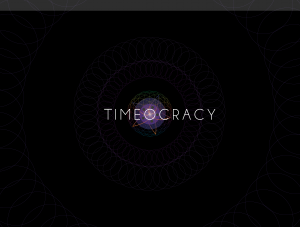
about
The first major premise of thought and the material base of planetary life itself have been engineered out of view. Whatever the cause, scientific reason must be re-set to recognize this first premise of life support systems it has long repressed. What has been excluded must be included – the universal life support systems whose preconditions must be taken into account for full coherence of any claim to truth. There are three general criteria of truth versus falsehood. The first two are known, but the third has been missing. There is (1) consistency of assertions with established evidence, what scientific method has mastered. There is (2) consistency of inferences with premises, what philosophical logic and analytic philosophy have mastered. And there is (3) consistency of objectives and conclusions with life support systems which have been recognized by neither. There is no full coherence without consistency of all three. One cannot deny any of these three requirements of reason without absurdity. It cannot be rational or scientific to ignore or flout empirical evidence, to be inconsistent in claim, or to violate the requirements of universal life support systems. The most primary consistency – that without which life capacity is always reduced or destroyed – is now due.
12.11.6. The Missing Ground Principle of Full Coherence, as in the Encyclopedia of Life Support Systems, 2011, John McMurtry.This great insight grounds our research into communication ethics.
John McMurtry’s deep life philosophy offers a profound view of human being.
It proposes that we are all primarily ethical, valuing creatures, that we cannot avoid this role of making decisions grounded in lifeworld concerns and that this inquiry defines human-being.
What is life except the values we give it and the values we assign through our communications?
In response, communication ethics is a ‘sensemaking’ discipline that gives people of all ages and across all levels of experience, a methodological standpoint to debate and to affect their lifeworlds for the better.
Linked to new digital systems for public and private decision making, communication ethics offers a human and community pathway to address life conditions on this, our only Planet Earth.
Background
We are advisors and facilitators. Our discipline is communication ethics, a new transdisciplinary field of inquiry, which we organise as learning programmes for people, both one-to-one and those in small groups.
We also advise organisations interested in big-picture/small-frame communications, where communication ethics addresses increasing complexity in the digital information-space.
Overall, the point is to build self-learners with transferable skills that support each citizen to generate positive change for themselves and with their communities.
Communication ethics skills have great value for everyday life and work.
For young people especially, communication ethics is a formal learning standpoint that offers scientific grounds for all subsequent knowledge.
Our academic methods are well researched and effective, making learning fun and adding value and values to learners at all stages of their lives.
director
Dr Robert Beckett
I have a PhD in management communication and have worked both in the not-for-profit sector and for industry.
projects

Our main line-of-work is running workshops and learning events aimed at voluntary associations, community groups and communication professionals – marketing, advertising, public relations and digital management – bringing communication ethics perspectives, actions and values into organisation life.
Our other key project centres around the writing and production of a ‘ground-breaking’ online text with linked training materials. This is now close to completion and will be ready for publication shortly.